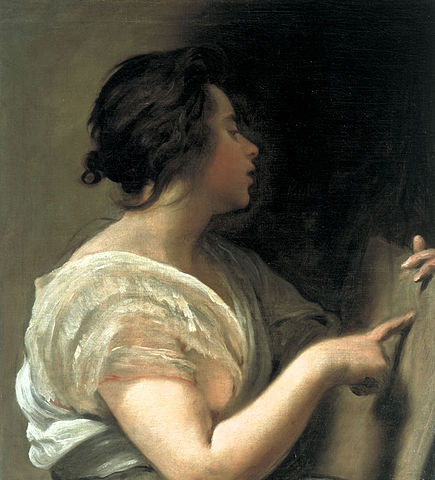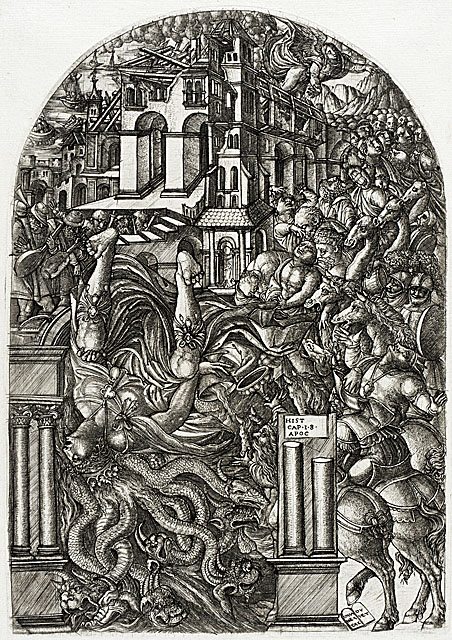inglés
LATINISMS IN THE CURRENT LANGUAGES
- ad kalendas graecas, intelligenti pauca, rara avis, RIP, STTL, SPQR, tabula rasa, verbi gratia, horror vacui

"AD KALENDAS GRAECAS"
ENGLISH WORD: “ad kalendas graecas”.
CURRENT MEANING: at no time, never, something that will never happen.
ORIGIN: this idiom appears in the August biografy written by Suetonius. What wanted to say August was that the bad debtors didn´t pay never their debts, because the Greeks did not reckon dates by calends. The Greeks didn´t use the same method to reckon the dates, that is, they didn´t have kalendas to point out the first day of the month, like the Romans.
"INTELLIGENTI PAVCA"
ENGLISH WORD: “intelligenti pauca“.
CURRENT MEANING: it means that we don´t have to explain many things to intelligent person. A similar expression is “few words suffice to he who understands”. It´s used when you don´t want to be very explicit in an issue and half-words are used.
ORIGIN: it comes from the Latin adjective singular dative intelligens, -ntis “inteligent” more neutral plural nominalized adjective paucus,-a, -um “few”.
"RARA AVIS"
ENGLISH WORD: “rara avis”.
CURRENT MEANING: it´s used to describe someone who is out of the ordinary in their work or in their thinking. It gets used to say of someone or something hard to find.
ORIGIN: abbreviation of rara avis in terra “strange bird on earth ”. This is the start of a verse of Juvenal, in which a faithful woman is compared to a black swan, a bird hard to find.
"RIP"
ENGLISH WORD: “RIP”.
CURRENT MEANING: it appears in funerary inscriptions with the meaning of “rest in peace”.
ORIGIN: acronym of the Latin expression Requiescat In Pace.

Excerpt from gravestone in Święciechowa, showing R.I. P.
"STTL"
ENGLISH WORD: “STTL”.
CURRENT MEANING: it appears in funerary inscriptions with the meaning of “may the earth rest lightly on you”.
ORIGIN: abbreviation from Latin Sit Tibi Terra Levis.
"SPQR"
ENGLISH WORD: “SPQR”.
CURRENT MEANING: emblem of the Roman people that means “Roman people and senate”.
ORIGIN: they are the initials of the Latin phrase Senatus PopulusQueRomanus. It is the signature on the documents, official buildings, monuments etc. It´s considered an emblem on the coins, on banners of the legions, on public works etc, indicating the union of the two powers of the Roman Republic, the senate and the people, from which the laws emanated. Even today this emblem is putting in the sewers of Rome.
Manhole cover with SPQR inscription in Rome, Italy.
"TABVLA RASA"
ENGLISH WORD: “tabula rasa”.
CURRENT MEANING: making tabula rasa is to leave things as they were before.
ORIGIN: the Romans used to write tablets covered with wax and a punch. With the back of the punch they could level the tablet so that they could write again without leaving marks from the previous.

Sibyl with Tabula Rasa. Diego Velázquez. Meadows Museum, Dallas, Texas.
"VERBI GRATIA"
ENGLISH WORD: “verbi gratia”.
CURRENT MEANING: it´s a Latin locution used as a cultured expression with the meaning of “example”, “for example”. It can be abbreviated v. gr. or v. g.
ORIGIN: from a morphological point of view we have a word formed by the genitive of verbum “word” and the ablative gratia “by the grace of”.
"HORROR VACVI"
ENGLISH WORD: “horror vacui”.
CURRENT MEANING: it has the meaning of “fear of the vacuum”. It´s used in the field of the arts to refer to the tendency to fill all the spaces of decorative elements.
ORIGIN: the idea comes from Aristotle, who in the book IV of Physics approaches arguments against vacuum. His argument was directed against the atomists, disciples of Democritus, proponents of that nature was made of atoms and vacuum. Against the vacuum of the atomists theory was defended by the Stoics and came up to the Middle Ages. The medieval scholastic philosophy believed that nature abhors a vacuum space and always try to fill it with content. So the gaps are filled with gases and liquids. The view that nature abhors vacuum was discussed in the 17TH century, Pascal being one of the biggest critics of this theory.

The Fall of Babylon, engraving by Jean Duvet from the Apocalypse series, circa 1555.